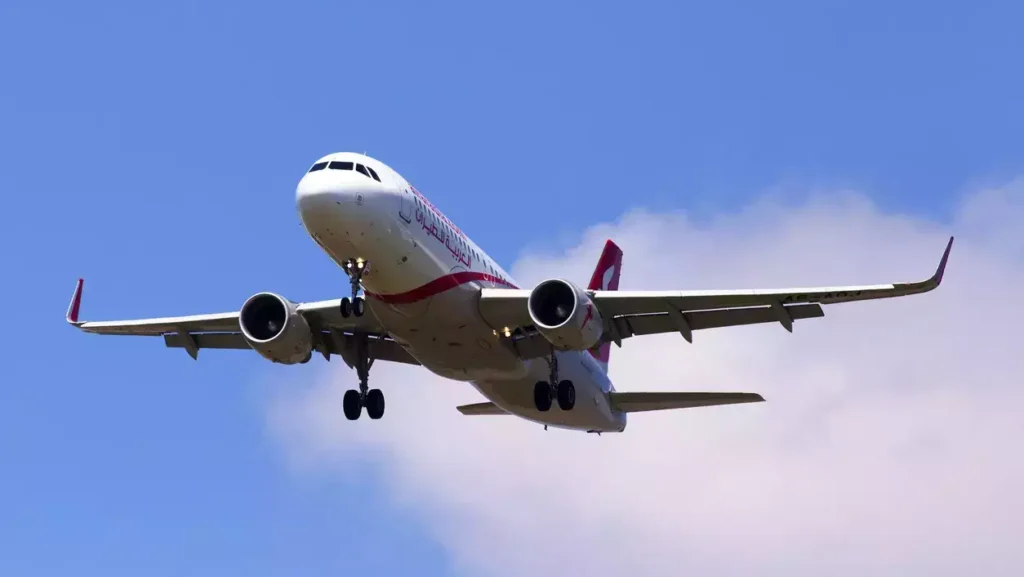The Department of Civil Aviation (DCA) in Sharjah serves as the local regulatory authority responsible for overseeing and driving the growth of the air transport industry in the emirate. With its strategic vision, the DCA ensures that aviation activities in Sharjah align with international standards while contributing to the emirate’s economic development and global connectivity.
Sharjah’s Aviation Legacy
Sharjah holds a distinguished position in the history of aviation within the UAE. As the first emirate to establish an airport in 1932, the region became a gateway for air travel in the Gulf. Today, Sharjah continues to build on its aviation heritage, with the DCA playing a pivotal role in modernizing and regulating the industry.

Key Responsibilities of the DCA
The Department of Civil Aviation in Sharjah is tasked with several critical responsibilities aimed at ensuring the efficient functioning and advancement of the aviation sector. These include:

- Regulation and Compliance: Establishing aviation regulations and ensuring adherence to local and international safety standards.
- Infrastructure Development: Overseeing the expansion and modernization of aviation facilities, including Sharjah International Airport.
- Airspace Management: Monitoring and managing Sharjah’s airspace to optimize safety and efficiency in air traffic.
- Aviation Security: Implementing robust security measures to safeguard passengers, airlines, and aviation infrastructure.
- Promoting Aviation Growth: Encouraging investment and innovation in the aviation sector to support Sharjah’s economic diversification goals.
Sharjah International Airport: A Hub for Growth
Under the supervision of the DCA, Sharjah International Airport has grown into a major hub for passengers and cargo. Known for its operational efficiency, the airport caters to millions of travelers annually while serving as a critical logistics hub for regional and international trade.
Features of Sharjah International Airport
- Passenger Services: The airport is equipped with modern facilities, providing a seamless travel experience for passengers.
- Cargo Operations: It is one of the leading air cargo hubs in the region, supporting trade and commerce.
- Low-Cost Carriers: The airport serves as the base for Air Arabia, the Middle East’s first and largest low-cost carrier, making travel affordable and accessible.
Strategic Vision for Aviation
The DCA’s vision focuses on making Sharjah a global player in the aviation sector. By fostering innovation, enhancing connectivity, and ensuring sustainable practices, the department is committed to positioning Sharjah as a hub for excellence in aviation.

Key Initiatives by the DCA
- Infrastructure Expansion: Ongoing projects to expand Sharjah International Airport aim to accommodate more passengers and cargo, meeting the growing demand.
- Technology Integration: The adoption of cutting-edge technologies in air traffic management and passenger services enhances operational efficiency.
- Sustainability: The DCA prioritizes environmentally friendly practices, promoting sustainable aviation fuel and green airport operations.
- Partnerships and Collaboration: Collaborating with international aviation authorities and organizations to ensure compliance with global standards and foster knowledge exchange.
Aviation’s Role in Sharjah’s Economy
The aviation sector, led by the DCA, significantly contributes to Sharjah’s economy. It creates employment opportunities, supports trade and tourism, and facilitates economic diversification.
Economic Impact
- Job Creation: The aviation industry generates thousands of direct and indirect jobs, supporting various sectors such as hospitality, logistics, and retail.
- Tourism Growth: Enhanced air connectivity attracts tourists from around the world, boosting Sharjah’s hospitality and cultural sectors.
- Trade Facilitation: Efficient cargo operations support import and export activities, reinforcing Sharjah’s position as a trade hub.
Challenges and Future Prospects
While the DCA has achieved significant milestones, it faces challenges such as evolving regulatory requirements, rising competition in the regional aviation market, and the need for sustainable growth. However, these challenges also present opportunities to innovate and adapt.
Future Prospects
- Digital Transformation: Embracing digital solutions for air traffic management and passenger services will enhance efficiency and customer satisfaction.
- Regional and Global Connectivity: Expanding flight routes and strengthening partnerships with airlines will position Sharjah as a preferred transit and destination hub.
- Sustainability Goals: Investing in renewable energy sources and sustainable practices will align with global aviation trends.
- Advanced Training Programs: Developing specialized training programs for aviation professionals will ensure a skilled workforce to meet future industry demands.
Conclusion
The Department of Civil Aviation in Sharjah plays a crucial role in shaping the emirate’s aviation landscape. By focusing on regulation, innovation, and sustainable development, the DCA ensures that Sharjah remains a competitive and forward-looking player in the global aviation industry. With its strategic initiatives and commitment to excellence, the DCA is not only driving economic growth but also reinforcing Sharjah’s reputation as a hub of connectivity and opportunity.
Do follow Uae stories for more Updates














